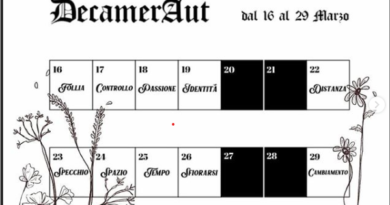| Argomenti svolti | Esponenti linguistici
• Plural nouns, countable and uncountable nouns
• Pronomi personali soggetto e complemento
• Question forms; subject and object questions
• Question tags
• Have got
• Possessive adjectives and pronouns; possessive case (genitivo sassone)
• Present simple
• Avverbi di frequenza ed espressioni di tempo
• Preposizioni di luogo e di tempo
• Present continuous; variazioni ortografiche
• Present simple vs. present continuous; verbi di stato e verbi di azione
• To be in the present and in the past
• Past simple (regular and irregular verbs)
• Verbi irregolari
• Comparative and superlative adjectives
• word formation
• verb patterns: verbs + infinitive and verbs +ing form
• Past continuous
• Past simple vs. past continuous
• Participio passato dei verbi regolari e irregolari
• Present perfect simple; uso di ever e never; uso di been e gone
• Present perfect con already, just, yet, still; present perfect con for e since
• Duration form
• Present perfect vs. past simple
• Quantifiers: much, many, how much, how many, some, any, a lot, little, a little, few, a few
• Uso di too e enough
• Past perfect;
• Past perfect vs. simple past;
• Used to;
• present simple e present continuous con valore di futuro, be going to e will
• Use of articles;
• First conditional;
• Defining relative clauses.
Attività per migliorare l’ortografia e la pronuncia di: silent letters, long vowel sounds; simboli dei medesimi long vowel sounds nella trascrizione fonetica dell'IPA (International Phonetic Alphabet), word stress.
Per ciascuno dei tempi verbali menzionati sono stati studiati la forma, l’uso, le short answers, le question tags e le variazioni ortografiche.
Funzioni comunicative
Sono state svolte attività di lettura e comprensione di brani, questionari, attività di listening e speaking, attività di writing, approfondimenti su phrasal verbs e combinazioni linguistiche con riferimento alle seguenti aree semantiche: personality adjectives, house and homes, rooms and furniture, adjectives + prepositions, teenage stereotypes, technology and computers, word families (nouns and adjectives), the arts and media, space travel, films and reviews, adjectives for people and places, adjectives for describing feelings, synonyms, linking expressions, collocations with “make”, “get” and “do”; crime; prefixes and suffixes, negative prefixes.
Sono state svolte attività comunicative relative alle seguenti situazioni:
• How to talk about habits and free-time activities
• How to express likes and dislikes
• How to talk about a selection of Aesop’s fables
• How to talk about a selection of stories by Beatrix Potter
• How to summarise a text
• How to talk about past events
• How to talk about recent events
• How to talk about films and reviews
• How to talk about, books, the arts and the media
• How to talk about technology and computers
• How to describe people, places, cities, and feelings
• How to write a text by using paragraphs
• How to write a story
• how to give opinions
• how to describe one’s home and favourite room;
• how to talk about school and education;
• how to talk about the plot, characters and events in The Secret Garden;
Studio sistematico di vocaboli e combinazioni lessicali quali phrasal verbs, collocations, compound nouns and adjectives.
Durante l’anno sono state svolte esercitazioni sulla tipologia di esercizi presenti nell’esame di certificazione linguistica B1 Preliminary for Schools con particolare attenzione ai seguenti nodi concettuali: How to read short texts for the main message, how to read for specific information and detailed comprehension, how to understand the writer’s opinion purpose and attitude, how to listen to identify key information, how to listen to identify specific information and detailed meanings, how to write short messages; how to write informal letters or emails, how to use the correct openings and closing for an email and a letter, how to write a short story, how to describe people and places, how to give opinions, how to write an article, how to give examples, how to use clues in a text to reconstruct it, how to understand where to put sentences that have been removed from a text, how to use linking expressions and collocations as clues; approfondimento sulle lettere formali e informali; approfondimento lessicale sui connettivi che esprimono un motivo o una ragione; caratteristiche della email e della lettera informale.
Cultura dei paesi di lingua inglese
Materiali utilizzati: sito internet BBC School Radio; internet e Youtube.
• The Hare and the Tortoise;
• The Ant and the Grasshopper;
• Racconti di Beatrix Potter: The tale of Peter Rabbit; The Tale of Mr Tod (parts 1 and 2).
• Lettura graduata di The Secret Garden
• Scene dal film in lingua originale Harry Potter and the Chamber of Secrets.
Attività di approfondimento lessicale, writing e speaking ispirati ai materiali sopra indicati.
Comprensione e produzione scritta e orale
Durante tutto l’anno scolastico sono state svolte esercitazioni di lettura e comprensione, accompagnate da attività di listening e speaking, attività di writing, riassunti scritti e orali, approfondimenti su phrasal verbs e combinazioni lessicali.
Esercizi di reading e use of English con esercizi di word formation, key word transformation, multiple-choice cloze, open cloze, multiple-choice questions. Ascolto di dialoghi tra native speakers e di interviste per individuare informazioni generali e specifiche. Attività di note-taking e sentence completion.
Indicazioni su come sviluppare efficaci strategie di studio (come fare un riassunto, come ricercare informazioni specifiche in un testo scritto, come suddividere un testo in paragrafi, come individuare informazioni in un testo orale, come studiare i verbi irregolari).
|
|---|



